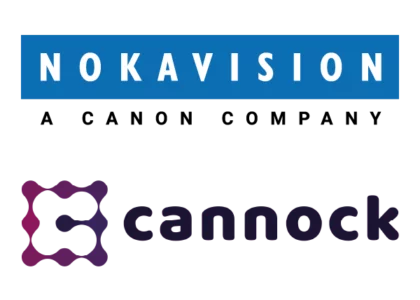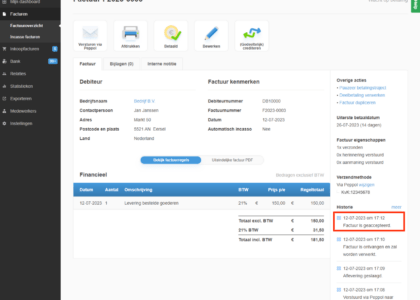In the Netherlands, e-invoicing has received increasing attention in recent years, but especially in our neighbouring countries, developments are following each other at a rapid pace, partly due to ViDA.
ViDA, or ‘VAT in the Digital Age’, is a European Union initiative and aims to improve the efficiency and transparency of the tax system, while reducing fraud. The initiative includes several measures that require companies and public authorities to use digital solutions for tax filing and invoicing. Countries can decide for themselves how to implement this, but for businesses it means at least preparing for the e-invoicing implementation deadline of 1 July 2030.
E-invoicing in the Netherlands
In the Netherlands, e-invoicing has been mandatory for some time if you invoice the central government. Although there is no legal obligation, more and more municipalities, provinces and companies are including a requirement for e-invoicing in their procurement terms and conditions. Most organisations in the Netherlands will therefore have had to deal with e-invoicing one way or another, but so far more PDF invoices are still being sent than e-invoices.
As the Netherlands will also have to deal with ViDA, further expansion of obligations is currently in progress. The obvious choice for the exchange of electronic documents (including e-invoices) is the Peppol network, as the central government and countries around us already use it. What the exact timelines are is not yet clear. The deadline is 1 July 2030, but it is likely that the Netherlands, like neighbouring countries, will choose to introduce the obligation earlier.

While a further extension of the obligation in the Netherlands is imminent, the same is not the case abroad. If you do business with a country that does have a requirement for e-invoicing, as a Dutch organisation you will have to ensure that you are compliant.
Countries around us are further ahead with the adoption of e-invoicing. For example, Belgium, France and Germany have already established when e-invoicing will be mandatory.
E-invoicing in Belgium
Belgium has made significant strides in e-invoicing in recent years. Since 2020, all Belgian public institutions must be able to receive and process e-invoices. In March 2024, it will be mandatory for suppliers with a new contract to send e-invoices to public authorities. On top of that, sending and receiving e-invoices is now mandatory for all companies (Business-to-Business) in Belgium from 1 January 2026. The infrastructure used for this purpose is Peppol.
Mandatory e-invoicing in France
In France, sending e-invoices to the government has been mandatory for some time, but from 2026 the obligation will be introduced for B2B there too. From 1 September 2026, it will be mandatory for all companies to be able to receive e-invoices. Sending e-invoices will then be mandatory for medium-sized and large companies. From 1 September 2027, sending e-invoices will also be mandatory for smaller businesses.
E-invoicing in Germany
Germany is also working towards making e-invoicing mandatory. From 1 January 2025, all taxable organisations in Germany must be able to receive e-invoices. The obligation to send e-invoices is divided into two phases. From 1 January 2027 companies with a turnover of more than €800,000 will be required to send e-invoices, and from 1 January 2028 the obligation will also apply to organisations with a turnover below €800,000.
E-invoicing in other European countries
Other European countries are also working on a model to comply with the e-invoicing obligation by 1 January 2030. Some countries, such as Italy and Spain are already there. They have implemented their own system for e-invoicing and to report invoices digitally. The countries with an existing obligation have to bring their system in line with ViDA by 2035 at the latest.
E-invoicing; are you ready?
E-facturatie biedt bedrijven veel voordelen, maar tot op heden heeft dat in Nederland niet geleid tot een grootschalige overstap naar e-facturatie. De komende jaren zal een overstap noodzakelijk worden, niet alleen vanwege de voordelen, maar ook om als organisatie compliant te zijn aan wet- en regelgeving. Het is daarom goed om tijdig te beginnen met de voorbereiding op een overstap. E-facturatiespecialisten, zoals Tradeinterop kunnen u helpen met het maken van de juiste keuzes voor uw organisatie.





